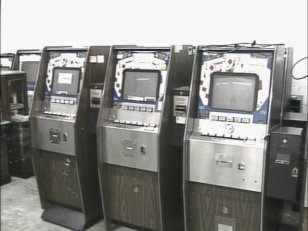ATLANTA - A top Georgia lottery official gave an icy reception Thursday to an ambitious proposal to build a gambling complex in Atlanta's suburbs, casting doubt on whether the $1 billion project will move forward.
Developer Dan O'Leary presented his plans to the Georgia Lottery Board in sweeping terms, calling it a "silver bullet" that could solve the state's Hope scholarship funding woes and boost the economy in one fell swoop. But James Braswell, who chairs the board, made clear after the presentation that he wouldn't consider the project without the support of elected officials who have so far been reluctant to do so.
"It's a public policy decision and not something we would do unilaterally," he said. "As long as the opposition to this concept seems to be as strong as it is now, I don't see us putting it on the agenda."
O'Leary has been developing the concept for eight years, and the latest version involves building a towering hotel, a spacious theater, upscale restaurants and a game floor with 7,500 video lottery terminals on a site in Norcross. The first phase could be completed in a year and a half, he said. When it's finished, it would generate $350 million each year for the Hope program and create 2,500 permanent jobs.
To those on the fence about his proposal, O'Leary said his plan would attract white-collar gamblers from across the region who would revitalize the local economy and pump millions of dollars into Georgia's coffers. And to those critical of the proposal, he argued it's simply an extension of the gambling Georgia already sanctions through the lottery.
"The fact is, we already have gambling in Georgia. That's what the Georgia Lottery Corporation does," he said. "If one opposes gaming, but we already have gaming, and the gaming doesn't fully fund Hope, you really have the worst of both worlds."
O'Leary knew it wouldn't be an easy sell in conservative Georgia, where the lottery was approved only after a lengthy legislative fight. But he and his supporters argued that video lottery terminals, which resemble slot machines but would be operated by the lottery board, wouldn't need legislative approval because they're already allowed under Georgia law.
Gov. Nathan Deal, who appoints the seven-member lottery board, met with O'Leary to discuss the proposal in January. His office has repeatedly said the governor opposes the expansion of gambling, and conservative groups such as the Christian Coalition of Georgia have urged Deal to reject the proposal. Legislative efforts to support O'Leary's proposal have also stalled.
But the lottery board, not Deal and legislative leaders, have the direct authority to approve O'Leary's plan, and until Thursday they had been largely silent about it. That changed when Braswell called it a ``radically different'' idea that needs broad-based support from elected leaders.
The struggles of the HOPE scholarship program give O'Leary an opening to make his case for the machines. Lawmakers made massive cuts to the program and the state's prekindergarten programs last year, doing away with full scholarships for all but the highest-performing students and slashing days out of the pre-k calendar. The scholarship program also no longer pays for books or campus fees, meaning that students must shell out thousands of dollars more each year to attend college in Georgia.
O'Leary, meanwhile, isn't planning on giving up yet. He's already shifted gears once after his 2009 proposal to transform Underground Atlanta was abandoned amid opposition. He has financing lined up, a deal with Georgia football legend Herschel Walker to open a restaurant at the complex, a 122-acre site under contract and an arrangement with Delaware casino company Dover Downs to develop the project.
"We are only seeing the tip of the iceberg of what is to come," O'Leary said of the scholarship's financial problems. "This does not need to happen. We have a simple solution to this very important and complicated problem. Our solution is a silver bullet. And it's the only silver bullet."
Tuesday
August 26th, 2025
1:33PM









